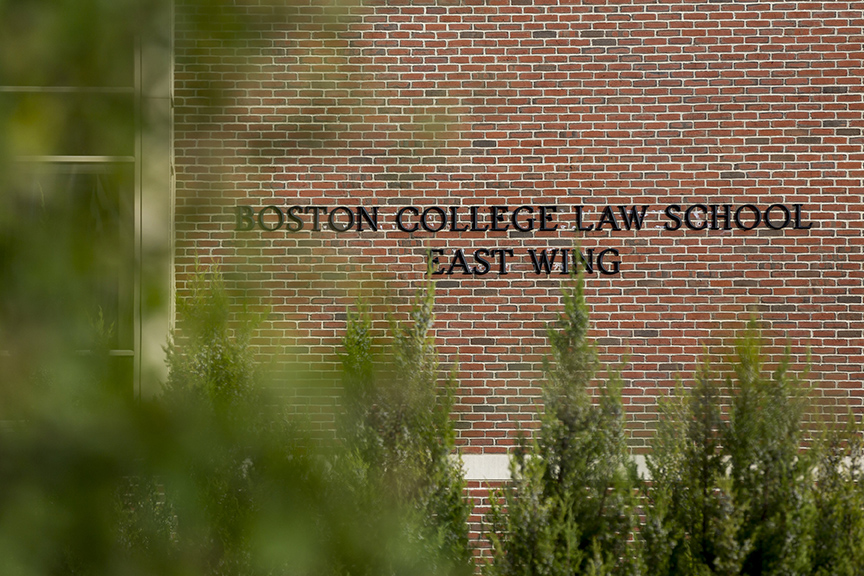Boston College Law School’s 2024 Faculty Prizes for Excellence in Scholarship and for Innovation in Pedagogy have been awarded to three professors who have shown excellence and innovation in their work.
The prize for Excellence in Scholarship is awarded on the basis of a piece of scholarship published or accepted for publication during the previous year, and can include books, law review articles, book chapters, peer reviewed journal articles, and other scholarly submissions. The selection criteria includes the clarity or novelty of the argument, the evidence marshaled, inter-disciplinary or cross-field collaborations, and other general indicators of excellence in scholarship.
This year’s prize has been awarded to Aziz Rana, professor and Provost’s Distinguished Fellow and incoming J. Donald Monan, SJ, University Professor of Law and Government, for the ambition and scope of his book The Constitutional Bind: How Americans Came to Idolize A Document That Fails Them (University of Chicago Press, 2024). The 824-page work explores different perceptions of the Constitution from various Americans, and the criticisms the historically revered document may face from the American people.
“Aziz Rana’s magisterial work has launched a much-needed set of conversations that will change the footing of constitutional law and its enduring reach—and perhaps current gridlock—on American life,” said Katharine Young, professor and associate dean of faculty and global programs. “These conversations are vital for the American project in constitutional democracy. They are also critical for America’s contribution to the global project. We are delighted to honor Aziz’s sustained intellectual contribution with this faculty prize.”
The Faculty Prize for Innovation in Pedagogy was created in order to recognize special initiatives undertaken by BC Law faculty. According to Young, such initiatives include “the introduction of distinctive technology in the classroom; new approaches to clinical and experiential learning; informed methods for discussion of challenging topics, such as race and the law and other disciplines of learning; adaptations to particular student needs or concerns, such as first-generation law students; and other innovations.”
This year’s prize has been awarded to both Daniel Kanstroom and Daniela Urosa for “synergistic innovations in the teaching of international human rights law,” according to Young—particularly for Professor Kanstroom’s 1L elective on international humanitarian law, human rights law, and refugee law, and Professor Urosa’s creative involvement of amicus briefs for the Inter-American Court of Human Rights in the Human Rights Practicum.
“Daniel Kanstroom and Daniela Urosa have pioneered a formidable set of new programs for our students interested in human rights, from the first year onwards,” said Young. “In her human rights practicum, which connects human rights professors with students from across BC, Daniela’s knowledge and connection to the Inter-American human rights system, and to human rights in different Latin American constitutional systems, is at the cutting-edge. She has equipped our students to address profound issues of climate change and human rights, and the practicum’s briefs have been cited in both national courts and the inter-American system. Daniel continues to connect humanitarian law, refugee law, and human rights law, now as a course in the 1L year. It is wonderful to see their innovations recognized in this way.”


